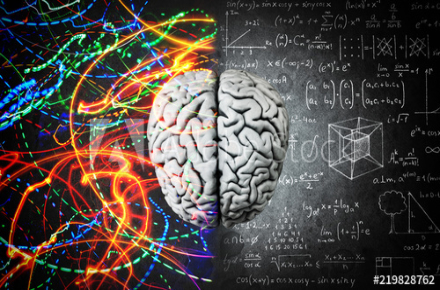Admission Open For MSc Mathematics
PG Degree Course M.Sc Maths
Introduction of the Program:
The M.Sc., Mathematics programme is expected to be highly beneficial to the student community. The programme introduces new ideas slowly and carefully in such a manner so as to give the students a good institutive feeling for the subject and develops an interest in the subject to pursue their studies further. It would also prove to be a great asset for those preparing for NET, SET and other competitive exams. One of the amazing features of the twentieth century mathematics has been its recognition of the power of the abstract approach. This has given rise to a large body of new results for problems and has in fact led us to emerging trends in mathematics.
Objectives of the Program:
Outcome of the Program:
The syllabus for M.Sc., Mathematics have been designed in such a way that the students, When they go out, will be capable of facing the competitive situation prevailing now and getting placement with developed Mathematical Knowledge.
Job RolesAccountant, Computer Programmer, Demographer, Aerodynamics Specialist, Economist, Loan Officer, Mathematician, Researcher, Statistician, Technical Writer, Treasury Management Specialist etc.
Placement OpportunitiesBusiness and Industry, Banks and Investment Firms, Central/State Government Departments, Colleges/Universities, Engineering Firms, Research and Development Firms, Insurance Agencies, Schools etc.
| Semester 1 | Semester 2 | Semester 3 | Semester 4 |
|---|---|---|---|
|
Lecture 1.1
Groups and Rings
|
Lecture 1.1
Linear Algebra
|
Lecture 1.1
Topology
|
Lecture 1.1
Functional Analysis
|
|
Lecture 1.1
Theory of Riemann Integrations
|
Lecture 1.1
Real Analysis
|
Lecture 1.1
Measure Theory
|
Lecture 1.1
Number Theory and Cryptography
|
|
Lecture 1.1
Ordinary Differential Equations
|
Lecture 1.1
Classical Mechanics
|
Lecture 1.1
Graph Theory
|
Lecture 1.1
Complex Analysis
|
|
Lecture 1.1
Differential Geometry
|
Lecture 1.1
Partial differential equations
|
Lecture 1.1
Probability and Statistics
|
Lecture 1.1
Operations Research
|
-
UNITIZATION
Each subject contain five units which are interrelated each other. Not only core subjects, but elective and non-major elective also contain the same.
-
PATTERN OF SEMESTER EXAM
Theory Subject
Total Marks: 100 (Internal: 25 Marks, External: 75 Marks)
Practical Subject
Total Marks: 100 (Internal: 40 marks, External: 60 Marks) -
PASSING MINIMUM
The passing minimum is 40% (External minimum is 27 out of 75; No minimum for internal, but External + Internal should be at least 40)
-
TRANSITORY PROVISION
A Transitory provision of three years has been given for the benefit of the students who come under the old syllabus.
-
EXTERNAL EXAM
A Candidate who does not pass the examination may be permitted to appear in the failed subjects in the subsequent examinations. A candidate should get registered for the first semester examination.Students must have earned 75% of attendance in each course for appearing for the examinations. Students who have earned more than 70% and less than 75% of attendance have to apply for condonation in the prescribed form with prescribed fee. Students who have earned more than 60% and less than 70% of attendance have to apply for condonation in the prescribed form with prescribed fee along with a medical certificate. Students who have below 60% of attendance are not eligible to appear for the examination. They shall re-do the semester(s) after the completion of the programme.
-
SCHEME OF EVALUATION
The performance of a student in each course is evaluated in terms of percentage of marks with a provision for conversion to grade points.
-
RE-TOTALING AND REVALUATION PROVISION
Candidates may apply for revaluation for the paper which was already evaluated, within 10 days from the date of publication of the result in the university website, through specified revaluation forms along with required fees.









